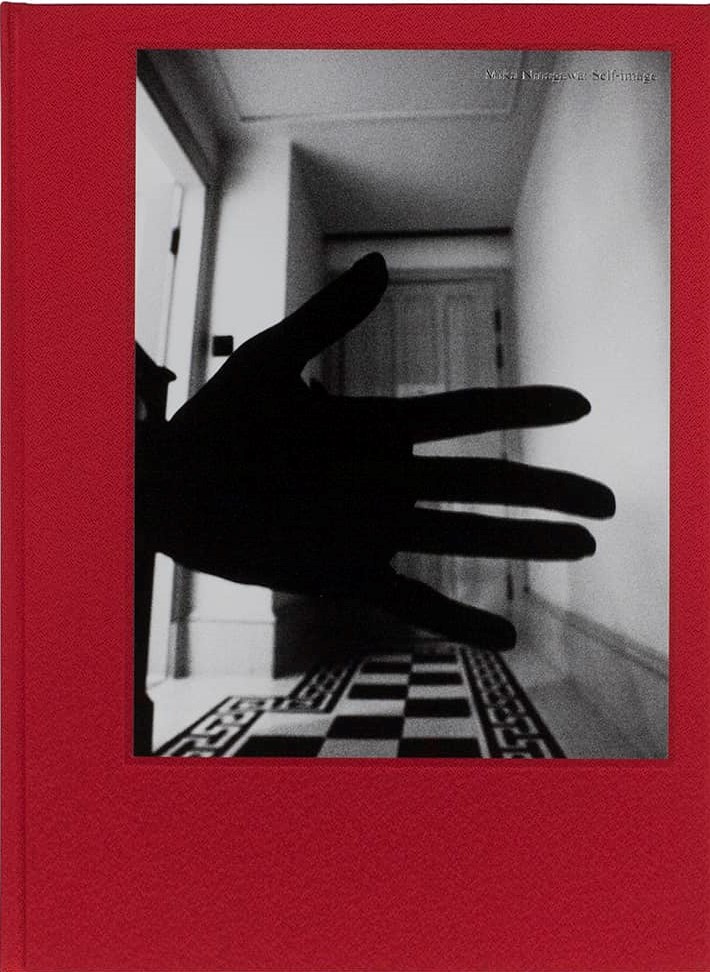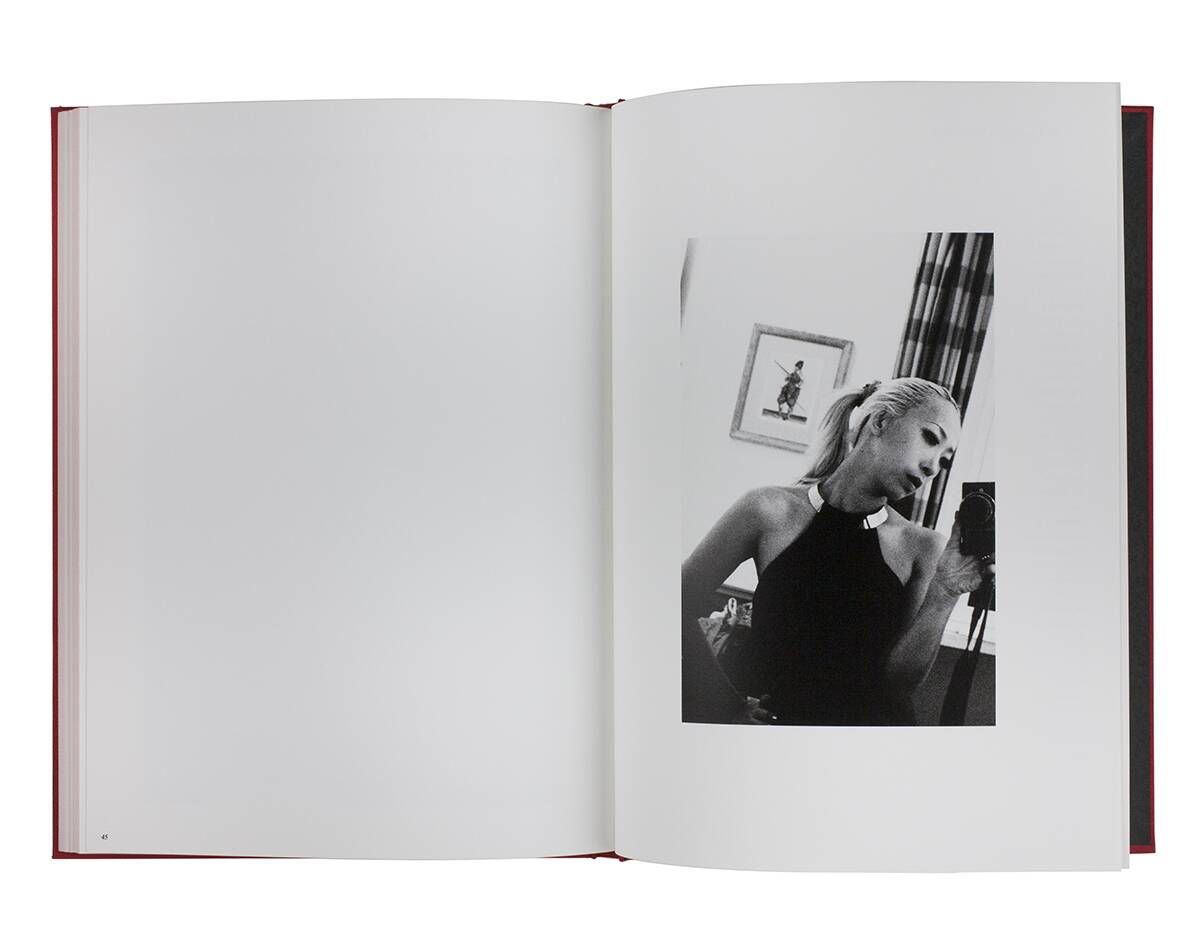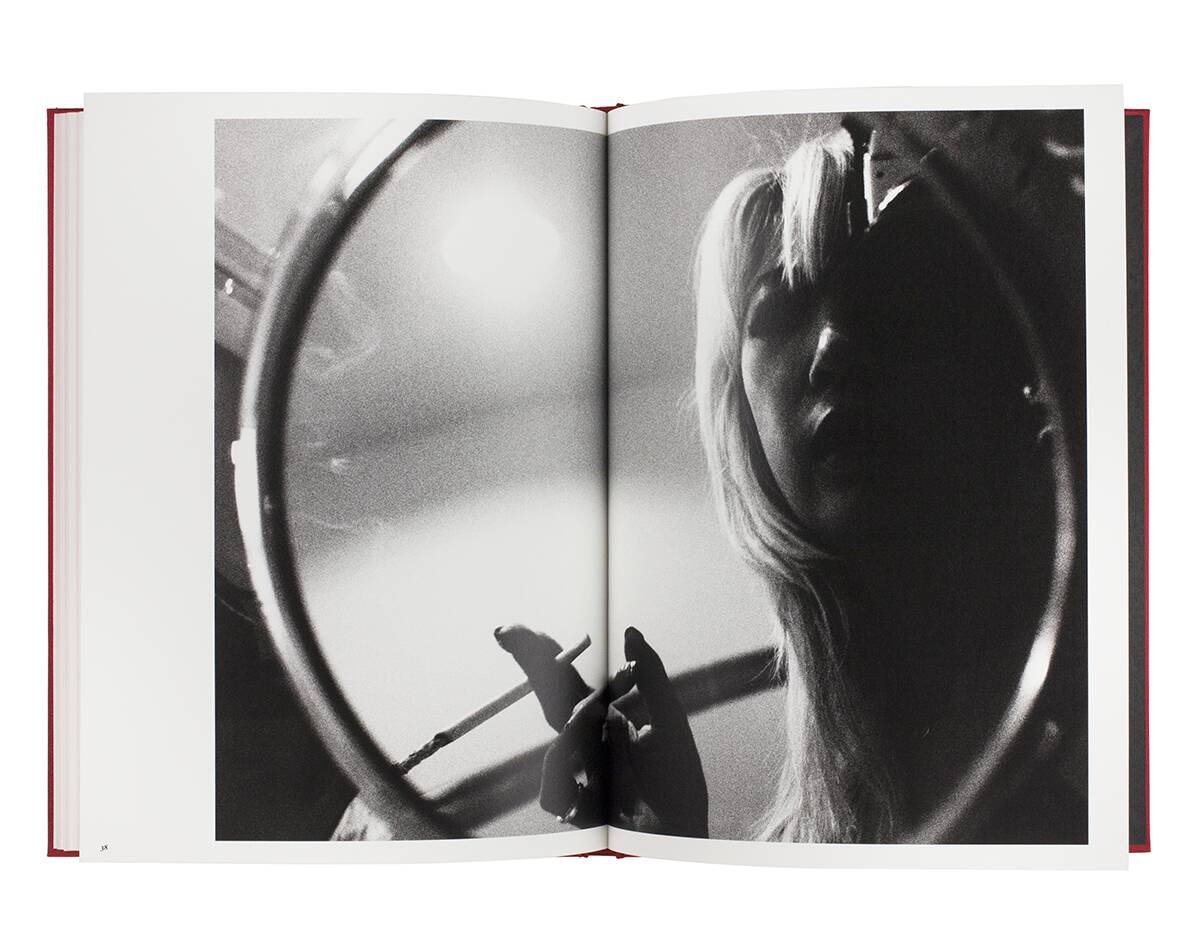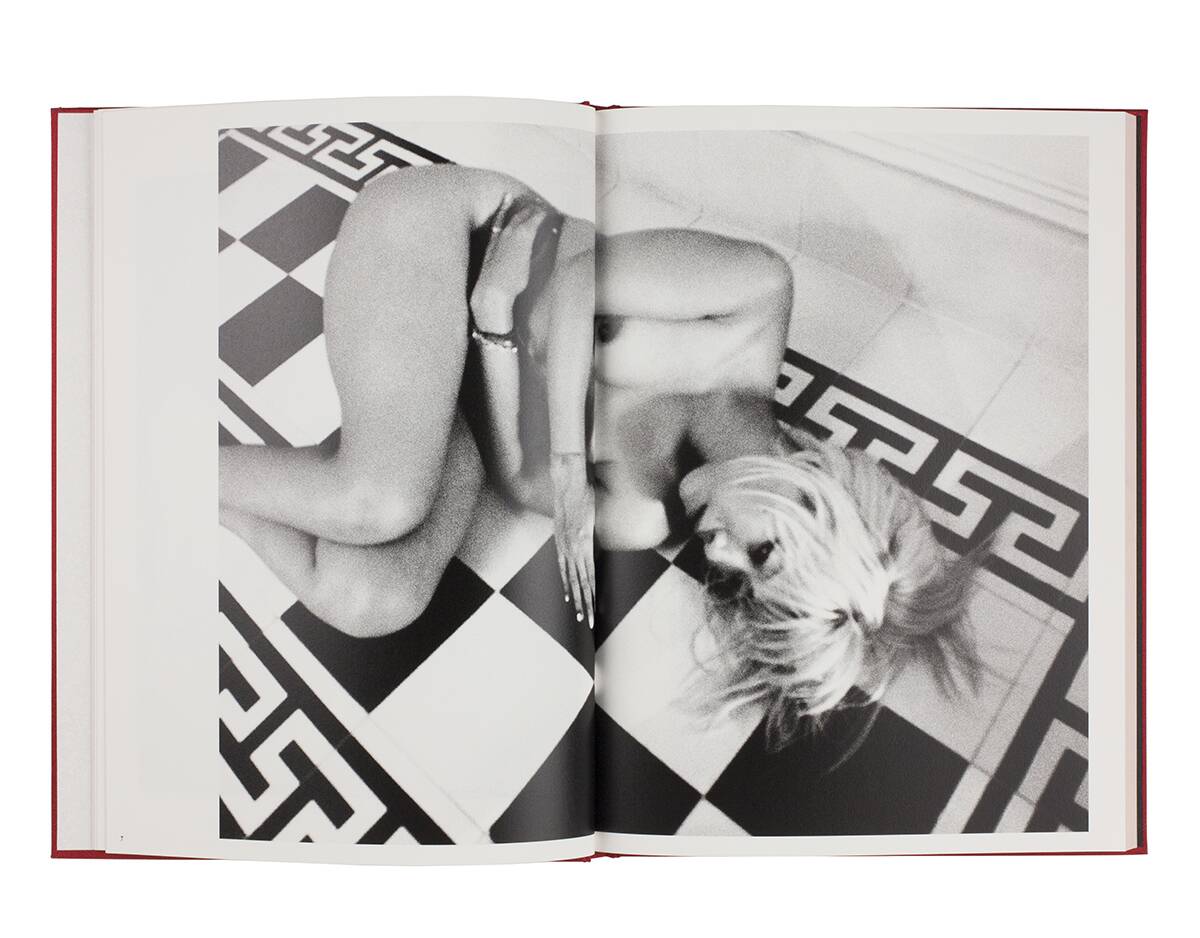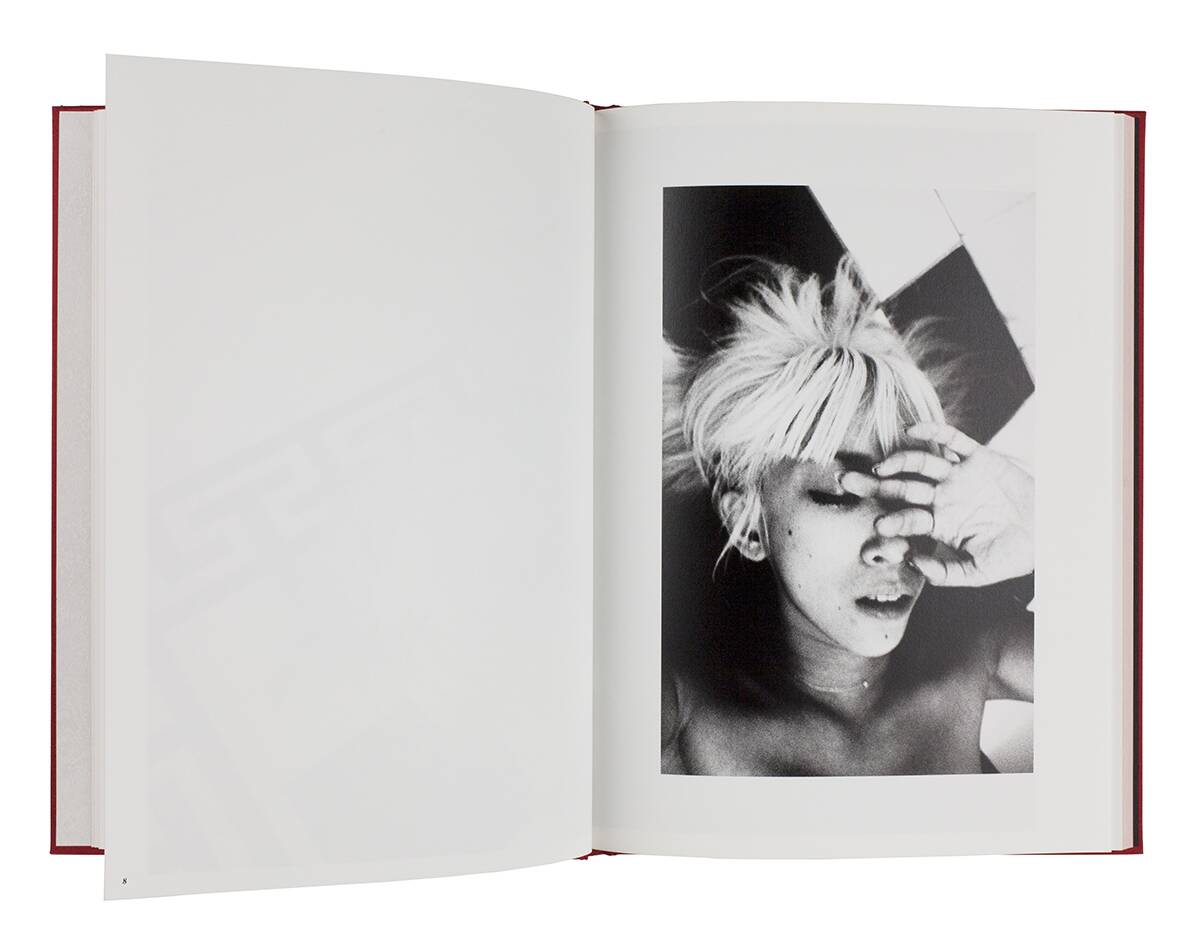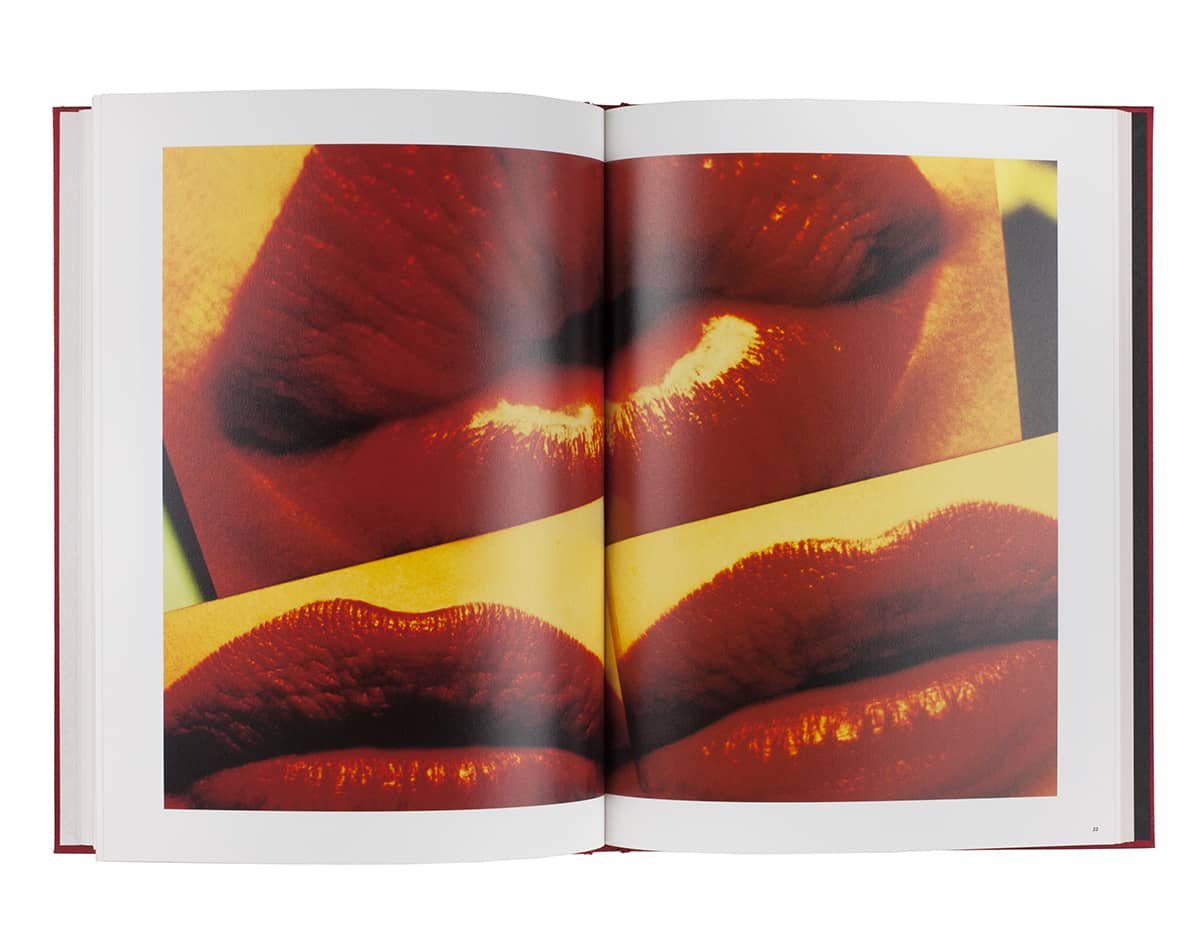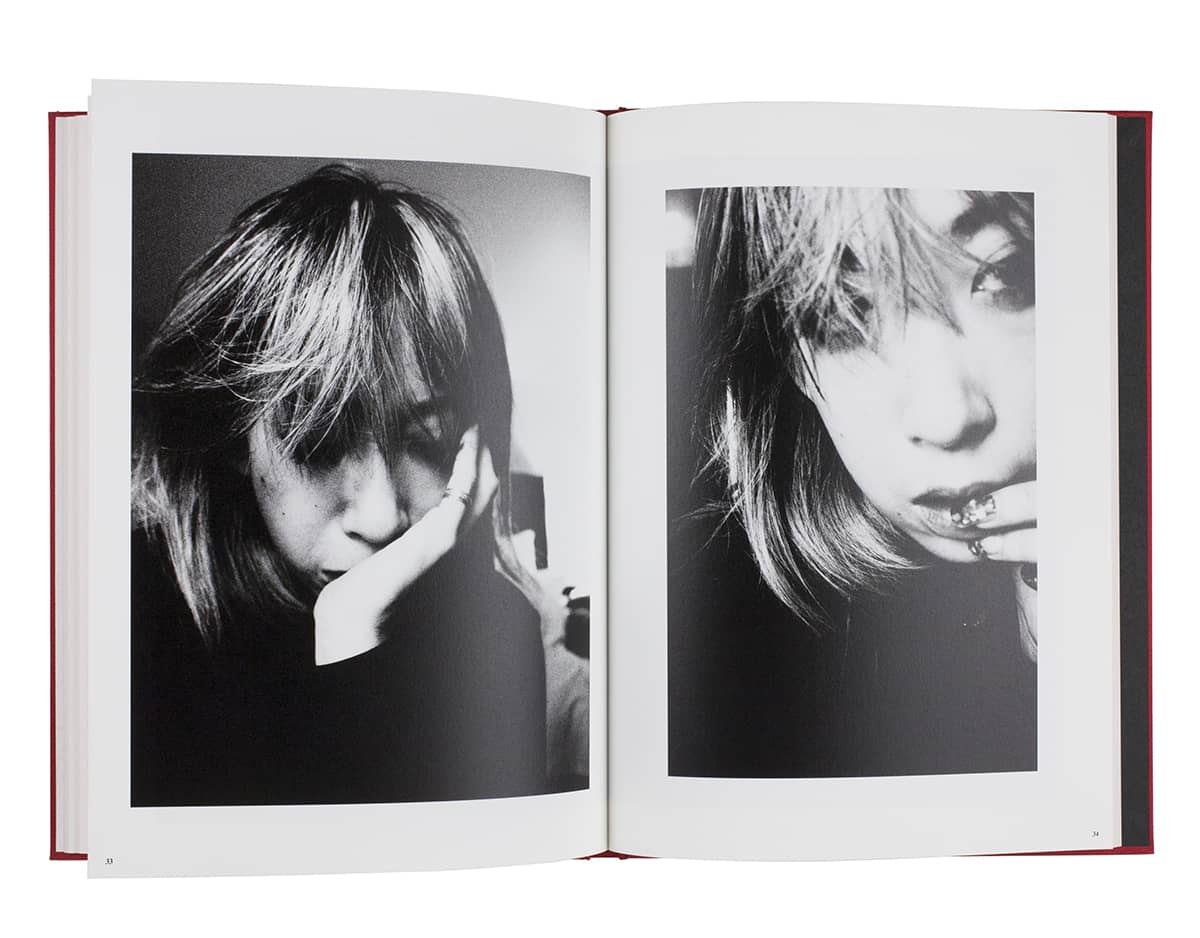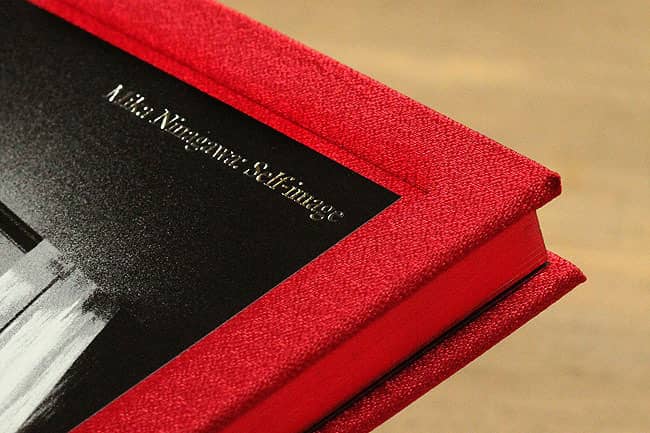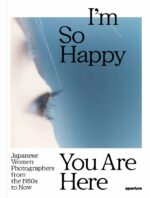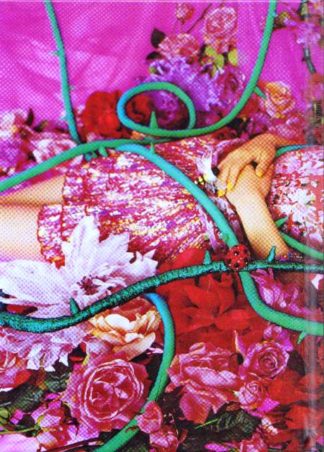Exemplaire Signé.
1ère édition numérotée sur 1 500.
Livre avec trois couvertures différentes
Le bruit des glands qui tombent dans le vent – par Yukio Ninagawa (Metteur en scène de théâtre)
Je n’ai pas d’objection à être photographiée, mais je n’aime pas regarder des photos de moi-même. Il est plus compliqué de travailler avec la façon dont je traite le sentiments de honte. Je me demande comment les photographes qui prennent des portraits d’eux-mêmes travaillent avec leur propre conscience de soi.
Les autoportraits de Mika Ninagawa ne trahissent pas un tel conflit. Lorsque les photographes prennent des portraits d’eux-mêmes, il est naturel qu’ils soient conscients de l’individu qui est photographe et de l’individu qui est photographié. Et pourtant, c’est aussi vrai que le spectateur porte un poids quand il regarde une photo et découvre un combat dans lequel le photographe se bat avec sa conscience de soi.
Je suis un peu soulagé que le travail de Mika Ninagawa ne me fasse pas sentir le fardeau de ces luttes.
Je ferme mon cœur pressé quand il essaie d’apprendre le sens derrière le regard de Mika Ninagawa, qui regarde hors des profondeurs d’une gradation sombre atténuée par l’ombre. Cela va de soi : qui voudrait voir transpercer la vie interne de sa fille ? C’est quelque chose que je crains, quelque chose dont je fuis. Au lieu de cela, je reconnais son intuition et le calibre de sa capacité à choisir parmi les fractions d’une seconde. Il pourrait également être une impulsion biologique ou réflexe qui lui permet de décider sur le moment exact d’appuyer sur le bouton d’obturation. Je pense qu’on peut dire que son talent se rapproche d’un instinct animal naturel.
Je n’aime pas la photographie libre. Mon plaisir réside dans des moments d’apnée. Le drame, où j’ai trouvé mon métier, est aussi une succession de ces moments tendus et fugaces, et c’est probablement pour cela que je n’ai aucune patience pour le travail lâche ou détendu. Certains penseront sans doute que c’est répugnant, mais ce n’est pas quelque chose que je peux aider. Les gens révèlent leur essence dans la façon dont ils acceptent le monde et comment ils tentent de se réconcilier avec lui.
Cette année, les glands qui tombent dans le vent font du bruit. Ils font un bruit quand ils heurtent le balcon ou les feuilles mortes dans la cour. Je trouve cela un peu irritant. Je ferme les pages d’une épreuve de galère pour l’image de Mika Ninagawa. Se balançant dans le vent dans un coin de la cour sont les bars et balançoires avec laquelle Mika avait l’habitude de jouer quand elle était petite. J’essaie de pousser doucement le monde intérieur et la chair corporelle de mon enfant dans le lointain arrière-plan.
Print with three different covers
The sound of acorns falling in the wind by Yukio Ninagawa Director (theatre)
I don’t mind being photographed, but I don’t like looking at photographs of myself. It’s most likely to do with the way I process feelings of shame. I wonder how photographers who take portraits of themselves work through their own self-consciousness.
Self-portraits taken by Mika Ninagawa don’t betray many traces of such conflict. When photographers take portraits of themselves, it’s natural that they should be aware of the self that photographs and the self that is being photographed. And yet, it’s also true that viewers are shouldered with a kind of weight when they look into a photograph and discover a fight in which the photographer is wrestling with self-awareness.
I’m somewhat relieved that Mika Ninagawa’s work doesn’t make me feel the burden of those struggles.
I close off my heart in a hurry when it tries to learn the meaning behind Ninagawa’s gaze, which peers out from the depths of a dark gradation dampened by shadow. It stands to reason: who would want to see the internal life of their daughter, pierced through? That is something that I fear, something from which I run. Instead, I recognize her intuition and the caliber of her ability to choose among fractions of a second. It might also be a biological impulse or reflex that allows her to decide on the exact moment to press the shutter button. I think it’s safe to say that her talent approaches a natural, animal instinct.
I don’t like loose photography. My pleasure resides in moments of held breath. Drama, where I’ve found my occupation, is also a succession of those tense, fleeting instants, and that’s probably why I have no patience for loose or relaxed work. No doubt some will think this repugnant, but that’s not something I can help. People reveal their essence in the way they accept the world and how they attempt to reconcile themselves with it.
This year, the acorns falling in the wind are making a racket. They make a noise when they hit the balcony or the dead leaves in the yard. I find this a little irritating. I close the pages of a galley proof for Mika Ninagawa’s Self-image. Swaying in the wind in one corner of the yard are the bars and swing-set with which Mika used to play when she was little. I try to push my child’s internal world and bodily flesh gently into the distant background.

